Prospect of airport in South Sound has residents on edge. ‘How is this even possible?’
A creek that divides two properties also connects four generations of Sarah Cole’s family in Eatonville, just south of the Graham border, where two-lane roads cut through hilly, wooded terrain and life hums along at a gradual pace.
The origin of their homestead, some 23 driving miles southeast of downtown Tacoma, traces to her grandparents, who bought 40 acres on one side of the creek in the 1960s after gas lines and commercial warehouses pushed them off their farm in Fife.
Her parents later followed, and then her aunt and uncle, too, purchasing property on the creek’s opposite side, where a treehouse with fern-green trim and a backyard timberland evoke fond memories of childhood imagination and exploration.
Today, five families live adjacent to each other on what is now about 25 acres, representing 60 years of a shared legacy that Cole, 49, said would be a “real gift” to pass down to her three children.
“No one’s going anywhere,” she said. “Or no one was considering going anywhere, you know, until this all came to light.”
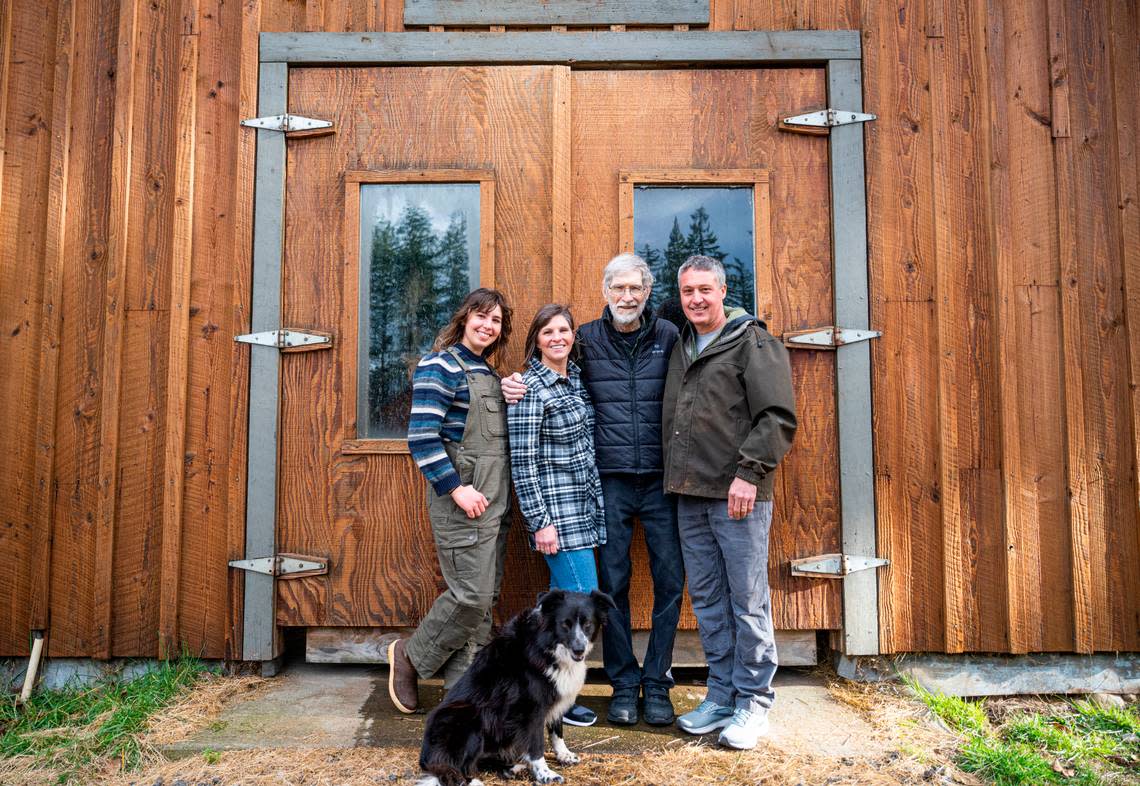
“This” is the prospect that a two-runway commercial airport emerges on bucolic lands already frayed by encroaching suburban development, a possibility that residents fear could cost them their homes and cause irreversible harm to the environment, diverse wildlife and other rural settlers.
Since the Pacific Northwest’s busiest air travel hub, Seattle-Tacoma International Airport, is projected to reach capacity by 2032, Washington state lawmakers want to erect a new airport by 2040 that could accommodate some 20 million annual passengers.
The state-created Commercial Aviation Coordinating Commission embarked in 2019 on identifying a potential location. With little money but a clear directive from legislators, the planning group last fall whittled a list of 10 sites to two rural swaths of land in Pierce County and a third in Thurston County -- finalists designated as six-mile-diameter circles on maps.
The Coles live on the edge of one of those circles and, like many, await the commission’s final recommendation to the state, expected by no later than June.
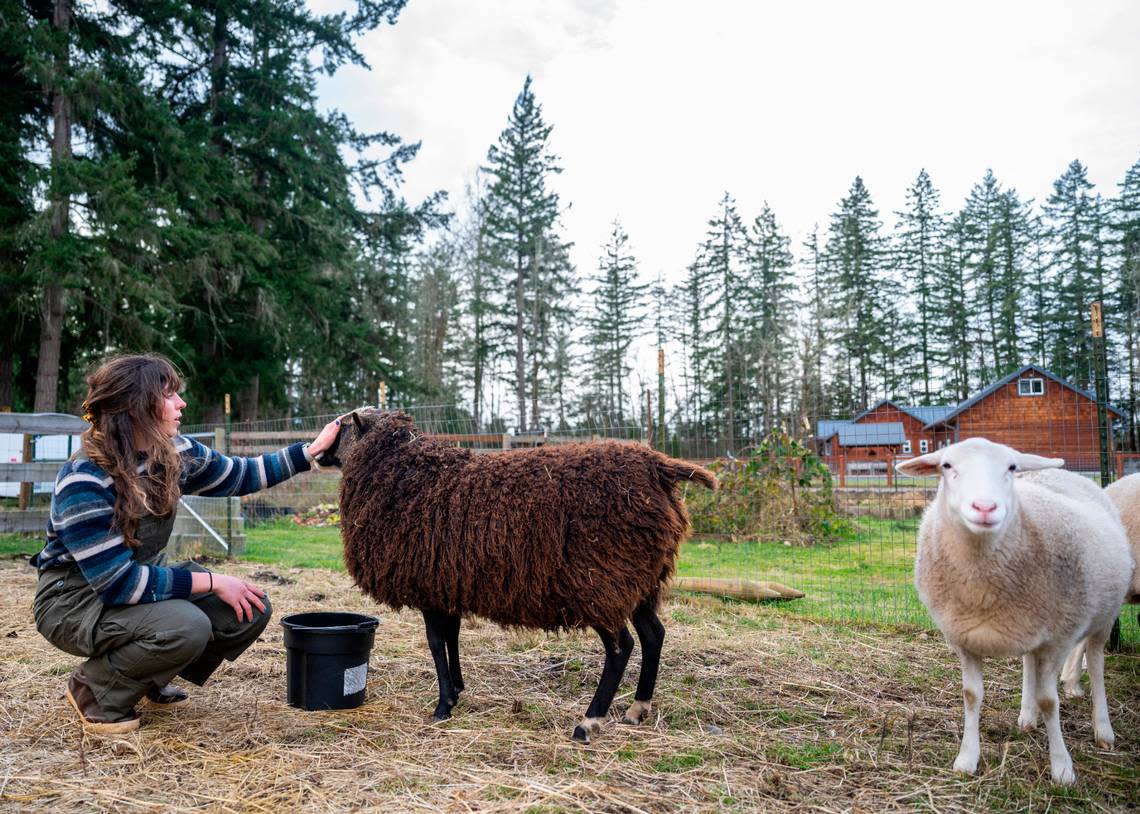
Nobody knows exactly where the airport could be built, adding to the intense anxiety felt by farmers, ranchers and generations of families in the South Puget Sound. But the proposed 3,100-acre domestic aviation hub is seemingly all anybody can think about these days from Graham to East Olympia.
“It’s difficult to even try to comprehend,” said Jeremy Foust, 45, whose family-run Left Foot Farm is situated within a different circle to the west of the Coles across State Route 7. “You’re looking at your backyard and saying, ‘how is this even possible?’”
Site shortcomings
The feasibility of siting an airport in Pierce or Thurston County is riddled with concerns, as acknowledged even by people intimately involved in the process.
From lacking infrastructure, interference with nearby Joint Base Lewis-McChord, conflicts with growth management plans and a threat to an aquifer that is the main source of drinking water for many communities, the obstacles to building such a large-scale development have given rise to broad and emphatic opposition.
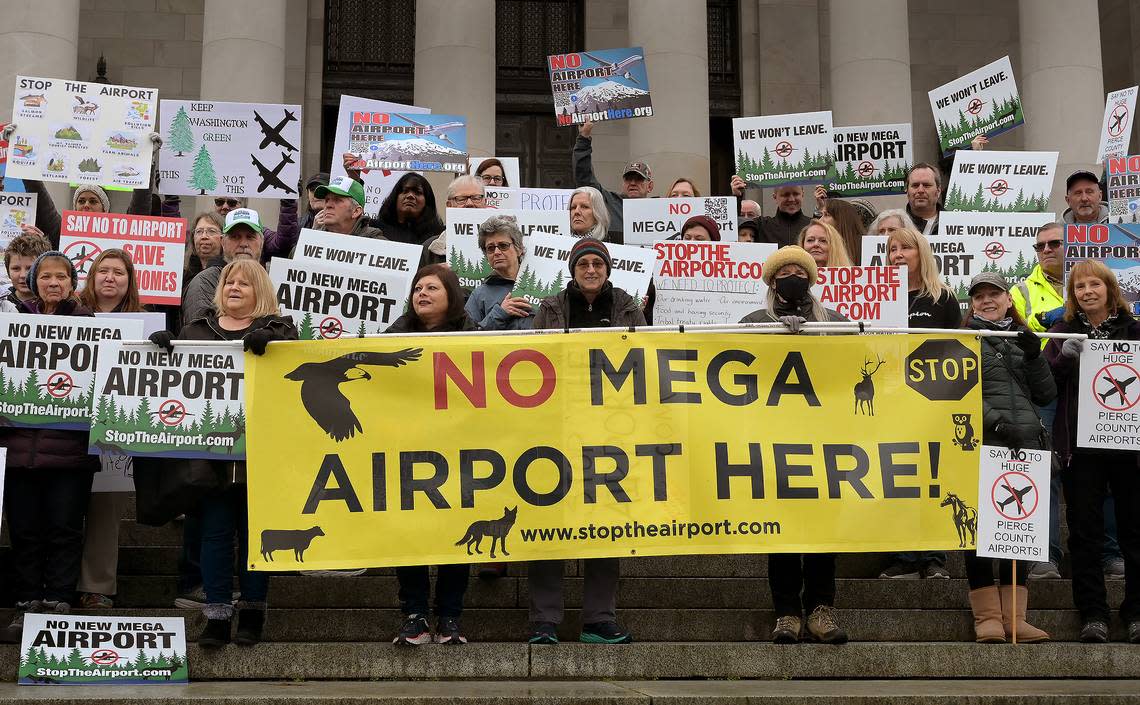
The Pierce County Council, tribal groups, JBLM, the National Park Service and state lawmakers representing the county in Olympia have each come out against the proposed airport sites. A bipartisan bill introduced this month would supplant the CACC and restart the process by broadening the scope of sites reviewed, looking at alternative modes of transportation and focusing on deeper analyses than before.
Land along Benbow Lakes and Lake Kapowsin, sandwiched between the two Pierce County circles, is used for fisheries, hunting and cultural activities by the Puyallup Tribe of Indians — territory it had purchased as a result of development on and around its reservation to the northwest. An airport would only further squeeze the Tribe, it wrote in a letter to the CACC in October.
For residents who find themselves enmeshed in the three-year hunt for a regional companion to Sea-Tac — a vast number of whom didn’t learn of the site-selection process until September — there’s a sudden uncertainty about the future. They can’t understand why the CACC would continue to explore sites that have prompted so many questions.
“It blows my mind that they would just be able to take out hundreds of acres of wetlands,” said Troy Vaninetti, 51, who has lived in rural Pierce County nearly all his life.
The areas are frequently visited by elk herds. Salmon swim in the creeks. Beside providing perches for eagles, woodland trees act as canopies to a variety of rural homes — a number of which belong to family legacies.
The Coalition Against Graham and Eatonville-Roy Airports, a grassroots group that sprung up in the fall, estimates there are more than 5,500 homes within the two Pierce County circles, according to lead organizer Jake Pool. A consultant’s study referring to the circles as “greenfield sites” — a term defined as undeveloped land but in this context describing areas without an airport — has been a point of frustration for activists.
“Even if you’re looking at pictures of hayfields, those hayfields are productive,” said Anneliese Feld, 36, an anti-airport organizer. “Our community depends on those hayfields to keep us going.”
Uncertain futures
Residents say they feel caught in limbo, unable to move on with the life they envisioned for themselves on idyllic lands until they know for certain what will transpire with airport talks, which may not be resolved for years. The what-ifs are jarring for those who only recently set down roots or began business ventures within or near the greenfield sites.
A Christmas tree lot expansion has been halted out of concern that the trees would need to be uprooted. A planned wedding venue business on a newly purchased family property seems incongruous with commercial planes flying overhead, casting doubt over whether it’d work. Homes bought for retirement suddenly appear less desirable.
When Army veteran Ruben Maldonado, 32, settled not long ago in Puyallup, north of the greenfield sites, he was drawn to the scenery of the area, including tall trees, and wildlife. Now he imagined that worsened traffic congestion and noise pollution would drive his family out.
“We value the little bit of nature that we have out here,” Maldonado said. “What little we have, we want to hold onto.”
In some instances, the serene environment is crucial.
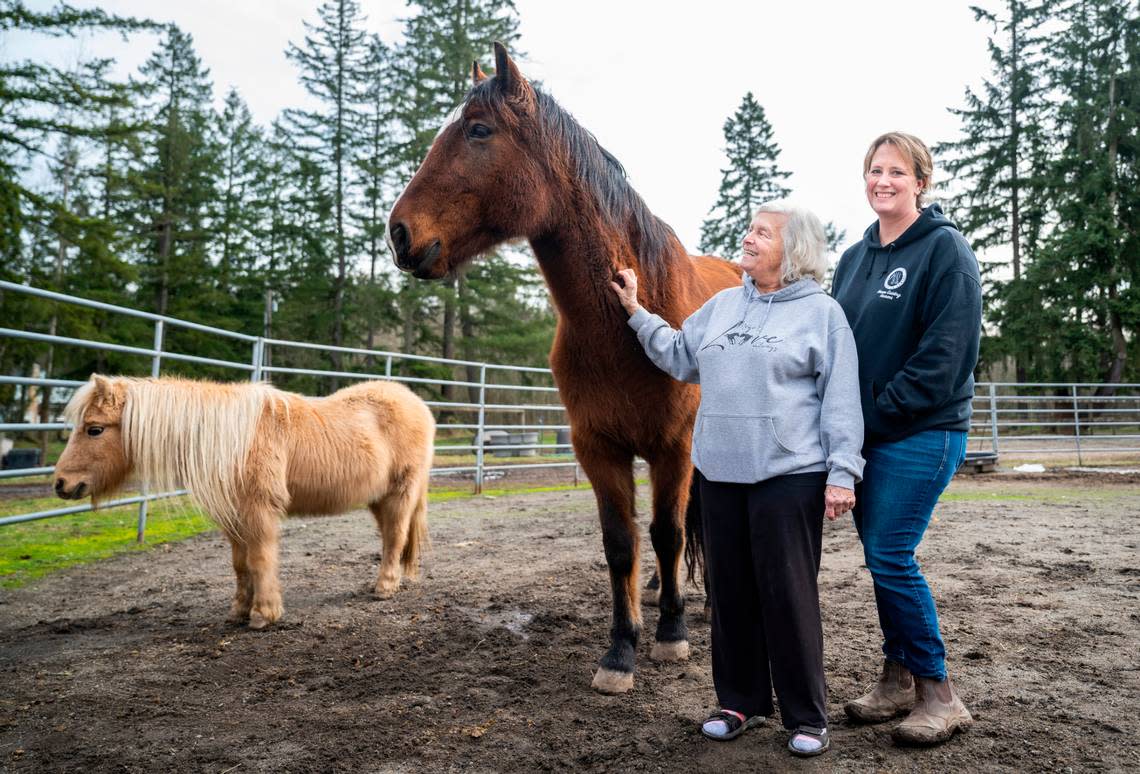
For roughly 50 clients who receive equine-assisted mental health therapy each week at a family farm in Graham, it is integral that they can ground themselves in the calm of nature, according to Sholeh Lulham-New, who runs the nonprofit, Horses Guiding Humans, alongside her mother, Sharon Lulham.
“For some people, this might be the only hour of peace they get in a whole week, right?” Lulham-New said during a recent tour of the property, wearing a black, hooded sweatshirt with the nonprofit’s motto on the back: “Take Life in Stride.”
She said they try to draw parallels between ordinary life lessons and the farm, which maintains some 30 horses and other livestock. A foal might need to grow past attachment issues with its mother. Clients learn boundaries with animals. A strong work ethic is required to keep stables clean.
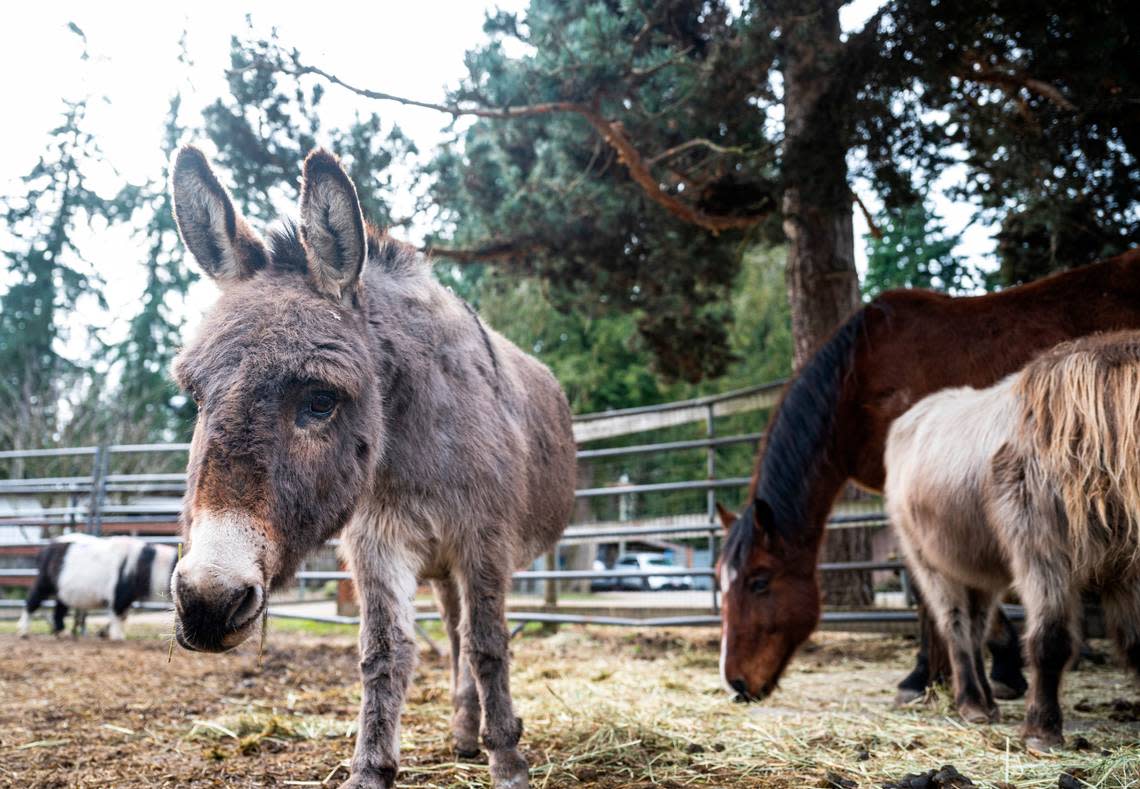
But since the farm is situated in the county’s eastern greenfield site, the mother-daughter team worry about its future. Even if their property isn’t eventually targeted for a new airport’s build zone, Lulham-New, 45, is afraid that one nearby would be counterproductive for clients, including military members, in addressing conditions such as depression, anxiety, post-traumatic stress disorder and special needs.
“I understand that it’s a complicated situation, that people want an airport and you have to have a lot of room for an airport,” said Mary Hake, 60, whose adult, disabled child has seen positive results from the therapy since beginning in October. “But I also firmly believe that you need to keep green spaces and you need to have areas for animals. And we have to find the balance for all individuals in that.”
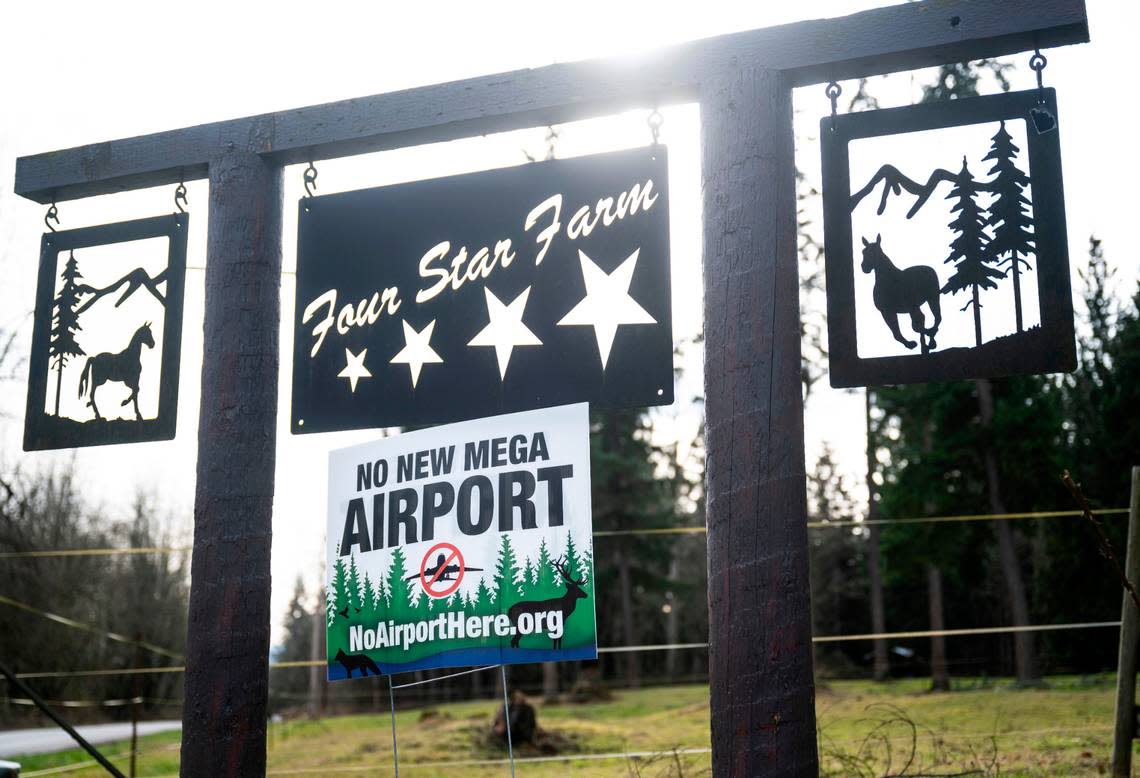
Rallying together
If nothing else, the prospect of an airport landing in rural Pierce or Thurston County has galvanized communities. They’ve joined Facebook groups, coordinated phone calls and emails to legislators and attended town halls, virtual CACC meetings and a rally at the state capitol. Anti-airport signs have been staked in front yards and backwoods roadsides.
“I’ve never seen a community come together this fast before in my life,” said Dale Kelly, 74, who has shared his home with his wife between Roy and Eatonville since 1998.
The issue has transcended party lines, causing county and state lawmakers to reach across the aisle and locals to cast aside political ideologies.
When a man rattled off reasons why an airport locally made no sense during an Orting City Council meeting, veterinarian Shannon West, founder of Coalition Against Graham and Eatonville-Roy Airports, was listening.
“And I agreed with everything he said, except for the slurs against Biden,” she recalled, with a laugh. “He can have those. That’s fine. It’s just not important anymore.”
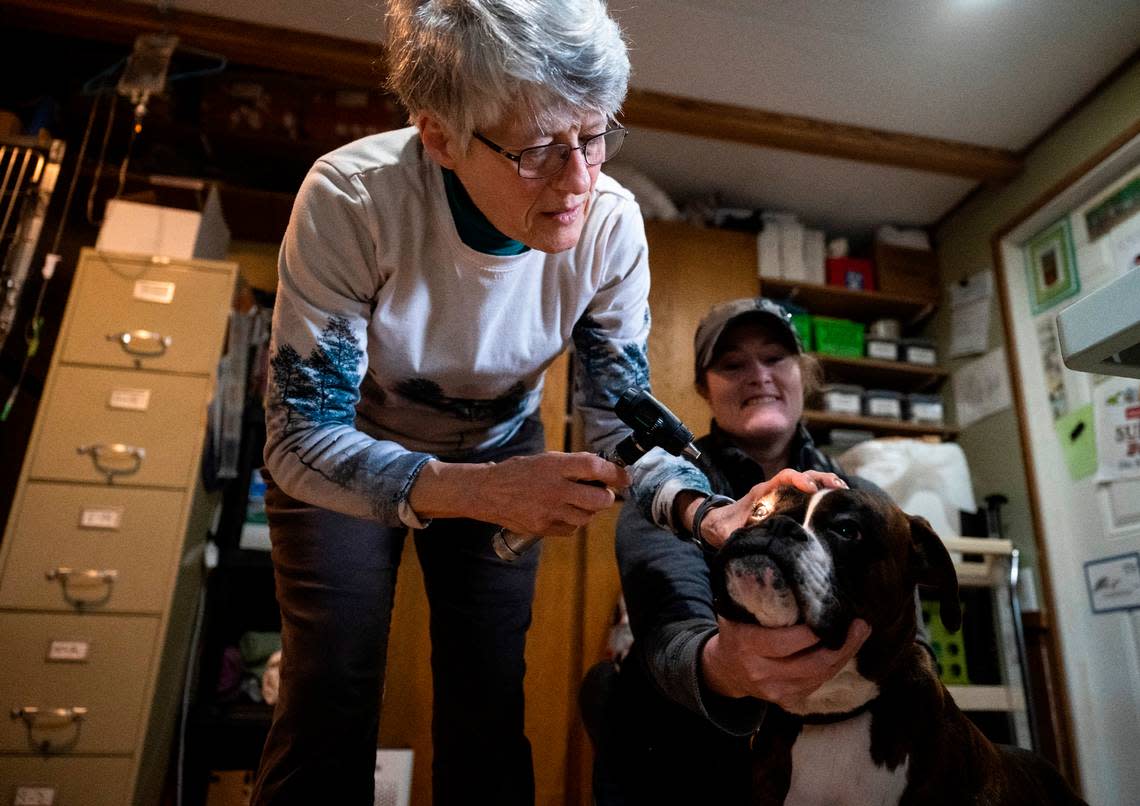
On a recent weekday, West, 68, inspected regular patients for canine ailments from her clinic, which for years she has run out of her home on a 1.25-acre property in Graham after moving to Pierce County in 1991. Two peacocks idled just outside — part of a flock that roam the rural neighborhood.
“I had to stop myself from looking out and imagining the bulldozers taking my trees down,” she said, discussing the fear of losing her home and business through land acquisition. “I think you’ve got to think positive or else you’ll give up. But I realize we don’t have a lot of power.”
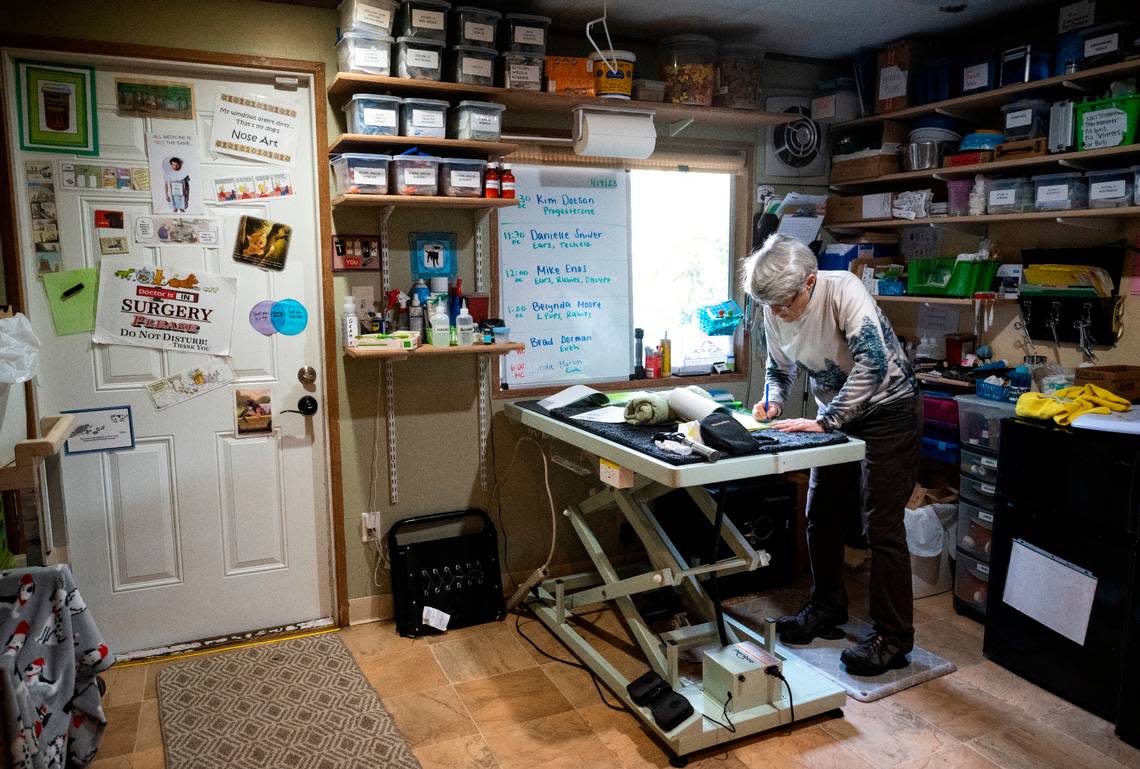
Lawmakers and CACC members assure that residents’ voices are being heard. But when they say that an airport isn’t sought to be operational until 2040 or that more time could be given for research before arriving at any type of site decision, Dawn Sonntag isn’t relieved.
“They really have no concept of what that does to us,” said Sonntag, 60, who is the chief organizer of the group, Stop the Thurston Airport. “To live with that kind of stress and not knowing when we would be pushed out ... it’s very traumatic and very stressful.”
Her home is ensnared within the Thurston County greenfield site. It’s where Sonntag, a music lecturer at Pacific Lutheran University in Tacoma, teaches lessons and records with a grand piano, purposely having set out to find an abode unbothered by heavy noise.
In an area off 224th Street in Graham, where Karen Ochsner lives, arguing crows often provide the soundtrack from up high, she said, and Mount Rainier feels within reach on a clear day. It’s been almost six decades since Ochsner, 65, arrived on her nearly 9-acre homestead, which she later acquired from her mother and intends to pass on to younger family members.
No other issue she could recall had similarly united the community since perhaps in the 1990s, when residents unsuccessfully sought to prevent a landfill from coming in after a lengthy fight. Ochsner and others aren’t willing to give up any ground.
“You’ve got to fight for it,” she said. “You have to.”
